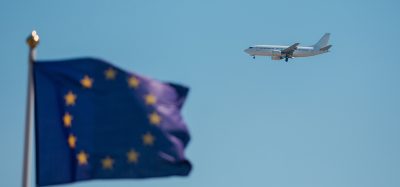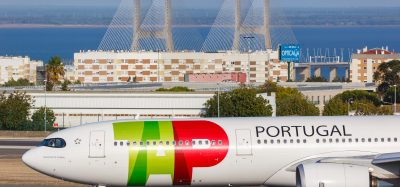NATO EUROCONTROL ATM Security Coordinating Group (NEASCOG) and the ATM Security Team (SET) working together for a future cooperation
- Like
- Digg
- Del
- Tumblr
- VKontakte
- Buffer
- Love This
- Odnoklassniki
- Meneame
- Blogger
- Amazon
- Yahoo Mail
- Gmail
- AOL
- Newsvine
- HackerNews
- Evernote
- MySpace
- Mail.ru
- Viadeo
- Line
- Comments
- Yummly
- SMS
- Viber
- Telegram
- Subscribe
- Skype
- Facebook Messenger
- Kakao
- LiveJournal
- Yammer
- Edgar
- Fintel
- Mix
- Instapaper
- Copy Link
Posted: 12 June 2012 | EUROCONTROL | No comments yet
Bringing together all stakeholders…


A joint NATO EUROCONTROL ATM Security Coordinating Group (NEASCOG) and the ATM Security Team (SET) took place at Brussels on 7 and 8 of June 2012.
The objective of the workshop to bring together all stakeholders involved in ATM security to identify synergies and ways of working jointly. The outcome of the event will facilitate better progress, development and collaboration in the area of air traffic management security.
The event was co-chaired by Mr. Paul Connor, UK CAA ATM Security – Policy and Strategy Specialist, and Mr. Michael Steinfurth, Head of the Civil Military ATM Coordination Division at EUROCONTROL, Mr. Giorgio Cioni, Head of ATM Section in NATO Armament & Aerospace Capabilities Directorate and Mr. Wim Holthuis, LVNL Senior Contingency, Crisis and Security Manager.
The workshop went through the scope of work of both the NEASCOG and the SET, possible areas for future cooperation, e.g. cyber security, training and threat assessments, and the views and expectations from stakeholders. ICAO, the EC, EASA, the FAA, NATO and representatives from the aeronautical industry, ANSPs, aircraft operators and States civil and military authorities expressed the need for a harmonise implementation of suitable ATM security measures to cope with a real, persistent and ever evolving threat to aviation. In this regard, joint NEASCOG and SET actions would be of great added value, pooling together civil and military expertise from a broad range of stakeholders.
More than 60 people attended the workshop, and agreed that the main way ahead is to engage together in the development and implementation of a comprehensive ATM security strategy, based on reviewed threat assessments, aligned with current international and European developments. The workshop identified cyber security and security training as the most relevant areas for joint future work.


















